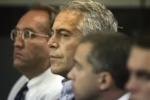French Prime Minister Sébastien Lecornu attributed the stalemate in national budget negotiations to partisan cynicism and presidential ambitions, marking his first public comments since lawmakers overwhelmingly rejected a key portion of next year’s fiscal plan.
“Everyone wants to push their own agenda and fly their ideological flag,” Lecornu said, noting that some political parties and candidates in the upcoming presidential election view compromise as incompatible with their strategies.
On Friday, only one lawmaker in the National Assembly voted in favor of the first half of the 2026 budget, which includes tax increases and other revenue measures.
Although a full government shutdown is unlikely—France can rely on a stopgap mechanism that temporarily extends the current year’s budget—the deadlock raises concerns about the government’s ability to implement its fiscal agenda.
In response, Lecornu plans to host party leaders and representatives from labor and trade organizations to discuss key national priorities, including agriculture, energy, defense spending, and deficit reduction. He reaffirmed that next year’s final budget aims for a deficit under 5% of GDP.
The discussions may lead to “ad hoc” parliamentary votes, starting with defense spending, to demonstrate that lawmakers can find common ground despite a hung parliament. Lecornu is now looking to the Senate for review and anticipates a process similar to a U.S.-style conference committee to reconcile the National Assembly and Senate versions of the budget.






